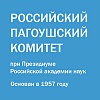Rotblat Memorial Lecture: Cold War Nuclear Confrontation – Lessons for today
April 10, 2019
0
comments
484
Views
Add to reader
Print
In
Log in if you are already registered
John Brenner, a member of British Pugwash, has prepared the below review of last year’s Sir Joseph Rotblat Memorial Lecture:
On 21st November, British Pugwash was co-organisator with the Polish Embassy, the Sir Joseph Rotblat Memorial Lecture. The guest speaker was Sir Rodric Braithwaite, a distinguished British diplomat, now retired. He shared his deep understanding of the Cold War nuclear confrontation, and how Joseph Rotblat and Pugwash helped to resolve it, and the lessons learned. All of which is comprehensively explained in Sir Roderic's recent book "Armageddon and Paranoia - the Nuclear confrontation".
Joseph Rotblat's career began as a brilliant young Polish-Jewish nuclear physicist who came to a research fellowship at the University of Liverpool in 1939, just before World War II broke out. Despite reservations about the use of science to develop such a weapon, he worked on the British atomic bomb project, and transferred to the "Manhattan Project", the US atomic bomb project racing to get the bomb before Germany did. In 1945 it became apparent that Germany had abandoned atomic bomb development. The US motivation shifted to subduing Russia, and he asked to leave the project. Amid US allegations of treachery, he returned to Britain as the acting director of nuclear physics research at Liverpool. He became a British citizen in 1946. In 1949 he was appointed Professor of Physics at St Bartholomew's Hospital (University of London), and remained there for the rest of his career. The initial focus was medical uses of radiation. This widened into science about nuclear fallout and the safe limits of ionising radiation. He became a prominent critic of the nuclear arms race. In 1955 he definitively calculated how the latest atomic bomb test by the USA had produced radioactive contamination 40 times greater than expected and officially stated. He was the youngest signatory of the Russell-Einstein Manifesto (1949). In 1957, amid worsening Cold War confrontation and paranoia, he helped organise the first Pugwash Conference. He and Pugwash and others gradually built up friendships and shared understanding between scientists and government advisors from the West and East. Many years of patient growth of mutual trust eventually led to the 1963 Test Ban Treaty, the 1968 Non-proliferation Treaty, the 1972 Anti-Ballistic Missile Treaty, the 1972 Biological Weapons Treaty, and the 1993 Chemical Weapons Treaty. He won numerous academic and civil awards, and shared with Pugwash the Nobel Peace Prize in 1995. He continued to work within the Pugwash framework until he died aged 97, in 2005.
The lecture concluded by observing that the world has now entered an alarming new era of nuclear confrontation and paranoia, mainly emanating from the USA and Russia, with other countries following suit. Sir Joseph Rotblat's life and work are a fine example of what we, and all people of good will, should now aspire to do.
Share this article
OTHER RECORDS
Communication from the Pugwash Council
October 26, 2023
Russian Pugwash Committee
Finland, NATO and Nuclear Weapons
March 24, 2023
Russian Pugwash Committee




